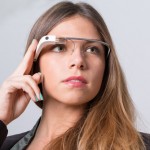 Google Glass via Shutterstock
Google Glass via Shutterstock
Perhaps the most challenging aspect of nutrition research is knowing what people eat. All of our guidelines and most scientific research on nutrition is based on asking people to recall and/or keep notes on what and how much they consume. From those data, researchers establish associations between consumption of various foods, beverages, and diet patterns with risk of diseases and death.
But as we have noted, current methods of ascertaining food intake especially in epidemiological studies depend to a great extent on memory, which is notoriously faulty. And this is a major part of the problem, as researchers have pointed out.
A new technological fix may be in the offing, according to a report in MedPage Today. Scientists at the University of Massachusetts Medical School are planning to use Google Glass (typically worn like a pair of eyeglasses) to record what people eat, and the data will then be saved to the cloud. Then researchers will be able to download and analyze it and hopefully come up with more reliable data.
Google Glass is a head-mounted display (that might look like modified eyeglasses) that can take pictures or record video, and in this case it's used to document what the carrier eats. The researchers, led by Dr. Yunsheng Ma, will run a five-week test. For the first 2 1/2 weeks participants will use a 24-hour dietary recall to record what they eat. Then, for the second half of the study, they will use Google Glass, and the accuracy of the results with the two systems will be compared.
Although this study will certainly provide valuable information about the accuracy of food intake records, using Google Glass (or some type of similar recording device) is a long way from being available for most dietary studies. Still, information it provides about intake accuracy could help researchers by showing which foods (if any) are most prone to problematic reporting, or which people (adults, teens, etc) are most prone to make significant errors. The results should be both informative and interesting.



